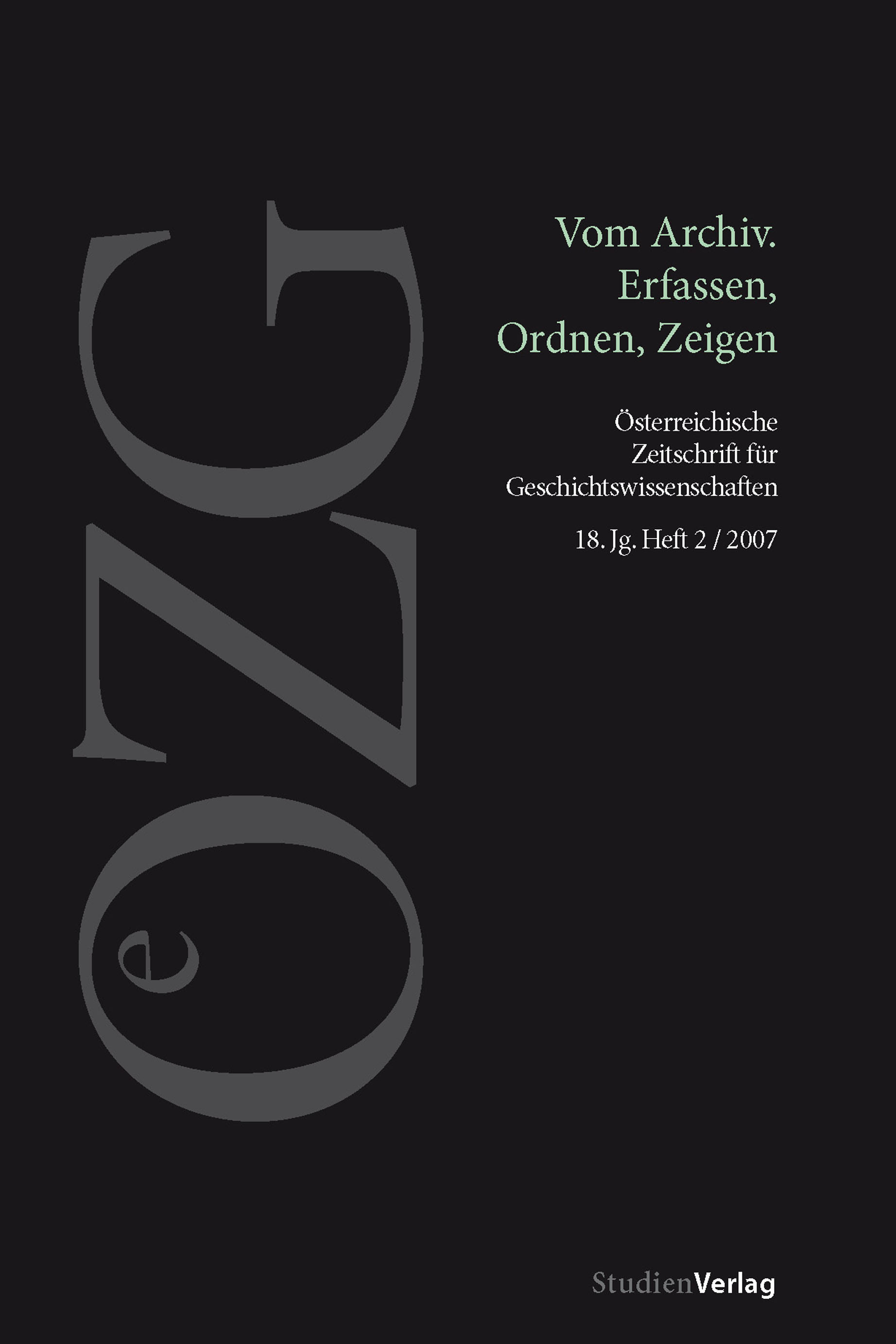Unglückliche Sammlungen. Archive und Archivschicksale des Illuminatenordens
DOI:
https://doi.org/10.25365/oezg-2007-18-2-2Abstract
Converting Sigmund Freud’s model of meta-psychology into a tool for the analysis of archives the article proposes to distinguish three different meta-archivological aspects: under a dynamic aspect archival phenomena can be described as a result of conflicts and combinations of forces; topologically speaking, one can locate the archival functions in distinct sites of the storage system; finally, the description has to allow for the economic problem of the archive, that is its precarious balance between constitution and dissolution, conservation and loss, secretion and publication, scar- city and redundancy, evidence and obscurity, sense and nonsense, history and dust. As is shown in my analysis of the late 18th century secret society of the Illuminati, these basic functions can not only explain how archival power is constituted and exercised but also how the will for a centralized and controlled knowledge meets the fate of epistemological and political disorder. Finally, the story of the Illuminati is apt to demonstrate how – in a very literal sense – the order and the continuous re-ordering of the archive accounts for the constitution of an historical object and its various appearances.


